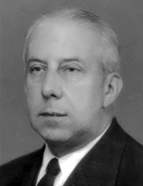

In it, he successively presented the central aspects of his political thought , which is legitimate to recognise as his canon. It should be noted that the idea of the monarchy takes centre stage. However, his thinking was not guided by an abstract or theoretical defence of the monarchical regime as the best of all regimes. Based on what actually happened, he used History to legitimise it. In the specific case of Portugal, he found in Ourique and Afonso Henriques the seed of the legitimacy of the Portuguese monarchy. It had its origins in the will of God conveyed by those who, after the military victory in Lamego, had consecrated the Portuguese leader as the sole holder of political power and, as such, had submitted to his authority. Its organic, traditionalist and anti-parliamentary character had its roots here , and, as such, the constitutional liberal monarchy corresponded neither ideologically nor historically to the parameters of Portuguese reality.
It was closer to a republic because of the ‘potentially’ elective nature of the head of state, the shared exercise of sovereignty , and the principle of equality that transcended hierarchies and differences. C onsequently, because it did not place the king at the apex of the pyramid, it could not be considered legitimate, nor could it fail to outright reject parliamentarianism and democracy in any of their formulations. In his view, only a return to pure monarchy was appropriate for the identity of the Portuguese nation and with it for national restoration. Any breach in the enunciated fundamental principles he defended would not only contradict national identity but would also destroy it in time unless a salutary reaction prevented it. This is what happened in 1820, 1836 and 1910. If the 1826 Charter had been preserved for some seventy years, it was because it had safeguarded some of those principles , and, to a certain extent, the same was true of the Estado Novo at the time. However, in his view, only a pure monarchy suited the identity of the Portuguese nation and, with it, its national restoration.
This work is financed by national funds through FCT - Foundation for Science and Technology, I.P, in the scope of the projects UIDB/04311/2020 and UIDP/04311/2020.
